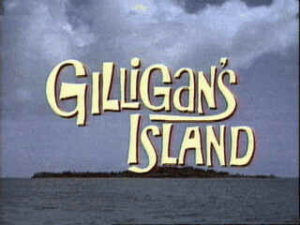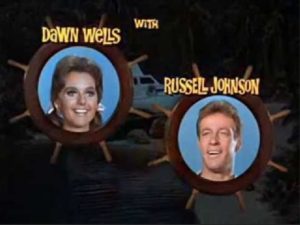
Even if you didn’t grow up in the 1960s, chances are you’ve watched the iconic TV show Gilligan’s Island, at least in reruns. And hard-core fans remember well the controversy surrounding the original lyrics of the show’s theme song, which omitted the names of two of the characters, referring to them merely as “the rest.”
Today we come to “the rest” in our overview of commonly confused words. Like the Professor and Mary Ann, these pairs sometimes get overlooked and might not seem to have much in common. But hopefully in the end they will turn out to be as memorable as the characters created by Russell Johnson and Dawn Wells!

accept/except – This is a pair similar to others we’ve seen before: they are best distinguished by keeping in mind their respective functions. Accept is a verb, meaning “to receive” or “to agree to.” Except can be a verb, meaning “to exclude” or “to leave out,” but it’s used much more often as a preposition meaning “other than.”
Example:
Since I was a kid when I watched Gilligan’s Island, I found it easy to accept its wacky reality—except the fact that many of the characters seemed to have a lot of clothes along for just a three-hour tour.
bring/take – You would think the distinction between these two words would be pretty clear: when you bring something, it’s coming here; when you take it, it’s going away to somewhere else. Yet there are times when the choice isn’t so clear.
Example:
The Howells are giving one of their elegant parties. Gilligan looks around his hut at an abundance of coconuts and wonders if he should bring any along. He is considering the coconuts’ possible destination at the party. But just at that moment, the Skipper walks into the hut and tells Gilligan, “You don’t have to take anything; the Howells have plenty of food.” The Skipper is talking about (actually, discouraging) the coconuts’ removal away to another destination. (By the way, I adapted this explanation from another grammar book that I highly recommend, Woe Is I—check it out!)
e.g./i.e. – Although these Latin abbreviations can give your writing an air of authority, don’t blow it by mixing them up. E.g. stands for exempli gratia, which means “for example,” and should be used in exactly the same way as the English phrase: to provide an example. I.e. stands for id est, which means “that is”—you’re providing clarification. Note also in the examples below that they both need a comma before and after them. If you have trouble keeping these two straight, it might be better to use the English phrases instead.
Examples:
Although Gilligan’s Island was supposedly deserted and isolated, the castaways had many visitors throughout the series, e.g., a big game hunter, a movie producer, and Russian cosmonauts. (E.g. introduces a list of examples.)
But none of these visitors were able to help the castaways realize their most cherished dream, i.e., getting off the island. (I.e. precedes a clarification.)

if/whether – This pair is best explained by looking at whether first: it’s used in situations when there’s a choice between alternatives. But in situations where you’re talking about a whether-or-not choice, then you can use if. However, in the whether-or-not situation, you can also use whether—and usually drop the “or not.”
Examples:
Ginger couldn’t decide whether to wear the pink or the gold dress. (Choice between two alternatives.)
And she didn’t know if the evening would be cool—would she need a jacket? (A whether-or-not situation. As explained above, you could also say And she didn’t know whether [or not] the evening would be cool—would she need a jacket?)
imply/infer – These two commonly confused words refer to the two opposite ends of the process of suggestion: to imply something means to make a suggestion or drop a hint, while to infer means to take it in and draw a conclusion. And that leads us to a good mnemonic for this pair: think of the in in infer connecting to taking a suggestion or hint in.
Examples:
In one episode, Mary Ann overheard the others having a conversation implying that she was in some kind of danger. (The others hinted at something in their conversation.)
Mary Ann inferred that some mushrooms she had eaten were poisonous and that she was going to die. (Mary Ann took in the hint and made a conclusion. Fortunately, she turned out to be wrong—the others were talking about her boyfriend back home dumping her!)
than/then – Although similar in sound, this is another pair with distinctly different meanings and usages. Than is used for comparison or contrast, while then shows that one thing follows or results from another.
Examples:
The Professor was more intelligent than all the others on the island. (comparison)
He designed gadgets that the castaways needed, then everyone would pitch in to help build them. (result)

So our tour of commonly confused words comes to an end. Since this was a much shorter trip than that of the ill-fated SS Minnow, we’ve managed to investigate only a few of them; there are many more out there. The main takeaway is to always check, check, and doublecheck, especially when you’re writing an important or formal piece (e.g., a resume, as opposed to a text to a friend), to make sure that you have the correct word or that you’re using it correctly. If there’s a pair of confusing words you’ve been wondering about that we didn’t discuss here, please feel free to share below!
And a big shout-out to IMDb for much of the Gilligan’s Island lore that I mined for today’s installment!
